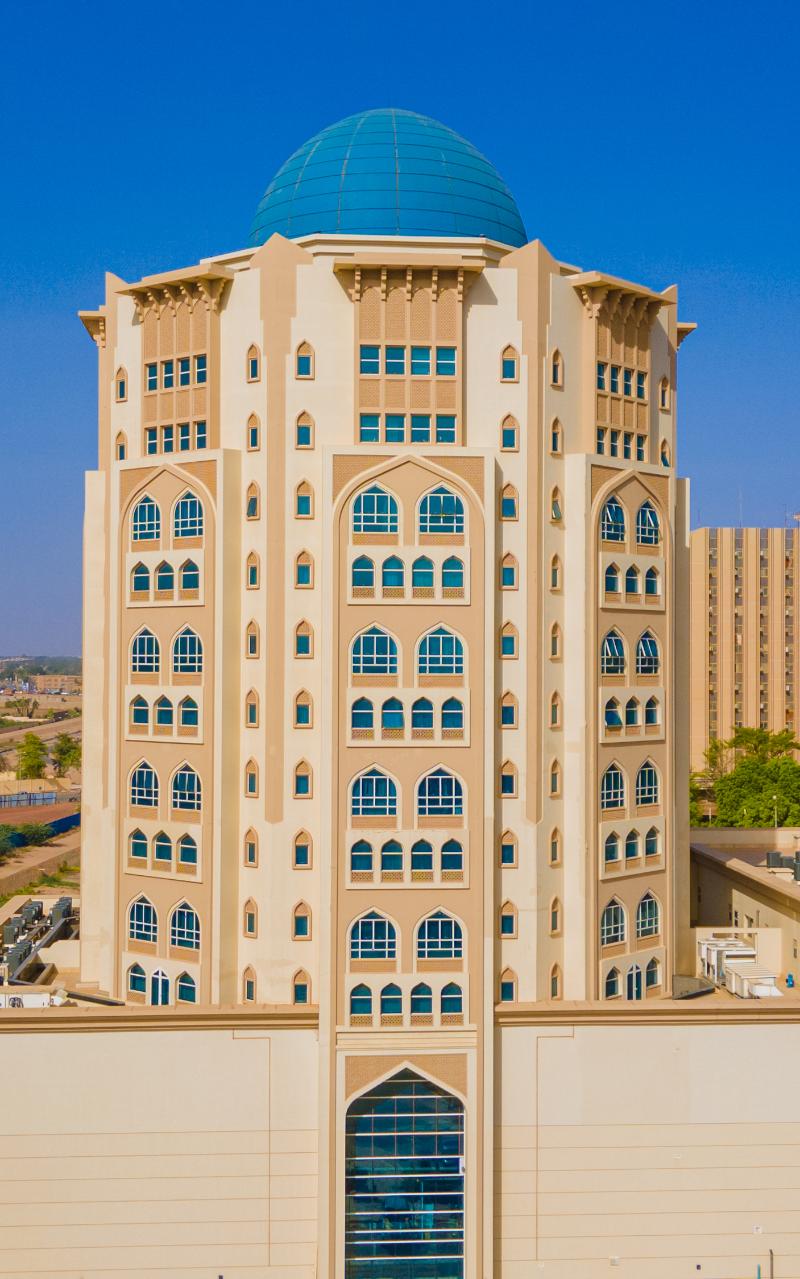
- Home
- Niger
Niger
Discovering the Cultural Heritage of Niger: It's a Must-See
Niger is a landlocked country in West Africa, known for its vast desert landscapes and unique culture. From the vibrant markets of Niamey to the stunning landscapes of the Sahara, Niger is a hidden gem waiting to be explored. Experience the warmth and hospitality of the Nigerien people on your next adventure.
⛅🌤️☀️
🌬️
💧
🌅
🌇
☀️
🌤️
⛅
Latest Niger Activities
Discover exciting activities and unforgettable experiences in Niger. View all
Latest Niger Properties
Explore a wide range of properties in Niger. View all
FAQsFrequently
Frequently
asked
questions
about Niger
Niger has a rich cultural heritage and several amazing attractions. Some of the must-see attractions include the historic city of Agadez, the W National Park, the Grand Mosque of Niamey, and the Air Mountains. Agadez is known for its mud-brick homes and the famous Agadez Grand Mosque, which is one of the most important religious sites in West Africa. The W National Park is home to a diverse range of wildlife such as lions, cheetahs, and elephants. The Grand Mosque of Niamey is a stunning building known for its intricate design and is one of the largest mosques in Africa. The Air Mountains are a breathtaking natural attraction and offer a range of outdoor activities such as hiking and camping.
Niger is a great destination for adventure seekers and nature enthusiasts. Some of the popular activities to do in Niger include visiting the historic city of Agadez, exploring the W National Park, hiking in the Air Mountains, and experiencing the traditional Tuareg culture. Agadez is known for its camel treks and Sahara desert tours. The W National Park offers a range of outdoor activities such as game drives, bird watching, and nature walks. The Air Mountains are perfect for hiking, camping and rock climbing. Visitors can also experience the traditional Tuareg culture by attending cultural festivals and visiting local villages.
The best time to visit Niger is during the dry season from November to February. During this time, the weather is pleasant, and there is little to no rainfall. The dry season is also the ideal time for wildlife viewing and outdoor activities. The wet season, from June to September, can be challenging, with heavy rainfall and high humidity which can make travel difficult.
The local currency in Niger is the West African CFA franc (XOF). It is linked to the euro and is used in several West African countries. Credit cards and ATMs are not widely accepted in Niger, so it's best to carry cash in the local currency. Foreign currency can be exchanged at banks or authorized currency exchange offices.
French is the official language of Niger, but there are several other languages spoken in the country, including Hausa, Zarma, and Tuareg. English is not widely spoken, so it's a good idea to learn some basic French phrases to help you get around.
Niger has a rich culinary culture, and there are several traditional dishes to try. One of the most popular dishes is Jollof rice, a flavorful rice dish made with vegetables, spices, and meat. Another popular dish is Djerma rice, a rice and tomato stew that is usually served with grilled meat. Tuareg tea, a sweet and minty tea, is a traditional drink that is served throughout Niger. Other popular dishes include T, a millet-based porridge, and Fufu, a starchy paste made from cassava or yams.
Niger is a predominantly Muslim country, and visitors are expected to dress modestly. Men should wear long pants and shirts with sleeves, while women are expected to dress conservatively, covering their arms and legs. It's also a good idea to bring a scarf or shawl to cover your head when visiting religious sites.
Transportation in Niger can be challenging, especially outside of major cities. The most common form of transportation is by minibus or shared taxi, which can be cramped and uncomfortable. Private taxis are also available, but they can be expensive. Niger is a vast country, and many of the major attractions are located in remote areas, so it's a good idea to plan your transportation in advance.
Niger has a range of accommodation options to suit all budgets. In major cities like Niamey, there are several international hotel chains, such as Radisson and Novotel. There are also several mid-range hotels and guesthouses that offer comfortable accommodation at a reasonable price. For those on a tight budget, there are several backpacker hostels and camping options available.
Niger has a rich cultural heritage, and visitors are expected to respect local customs and traditions. Some cultural etiquette tips to keep in mind include greeting people with a handshake, using your right hand for eating and shaking hands, and removing your shoes before entering someone's home or a mosque. It's also important to dress modestly and to avoid public displays of affection.
Niger is generally a safe destination for travelers, but it's important to take precautions to ensure your safety. Visitors should avoid traveling alone at night, especially in remote areas, and should be aware of their surroundings at all times. It's also a good idea to keep a low profile and to avoid drawing attention to yourself. Petty crime, such as pickpocketing and theft, can be a problem in urban areas, so it's important to be vigilant and to keep your belongings secure.







